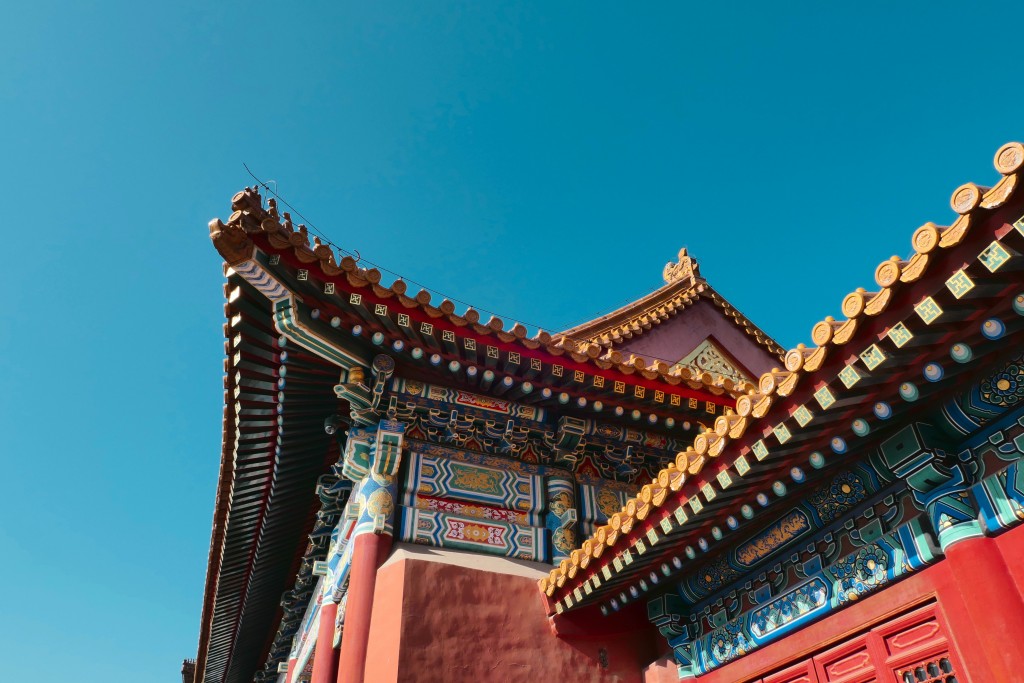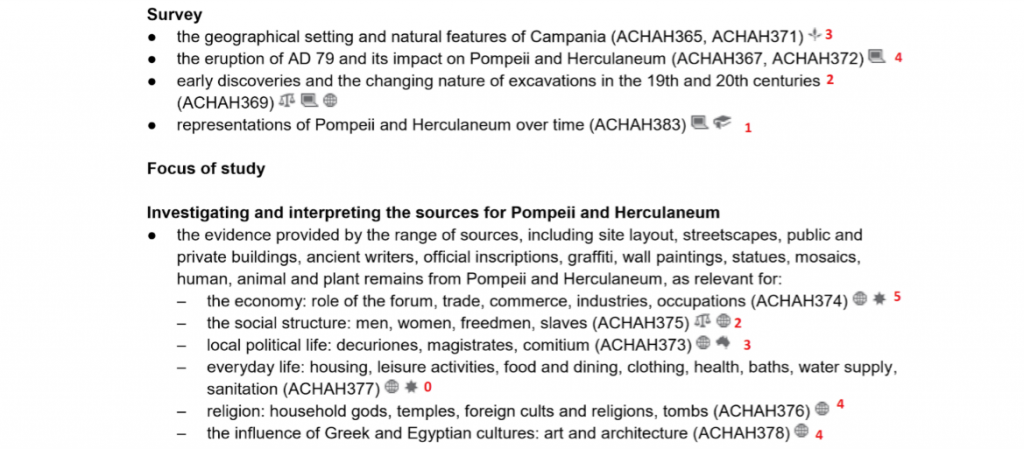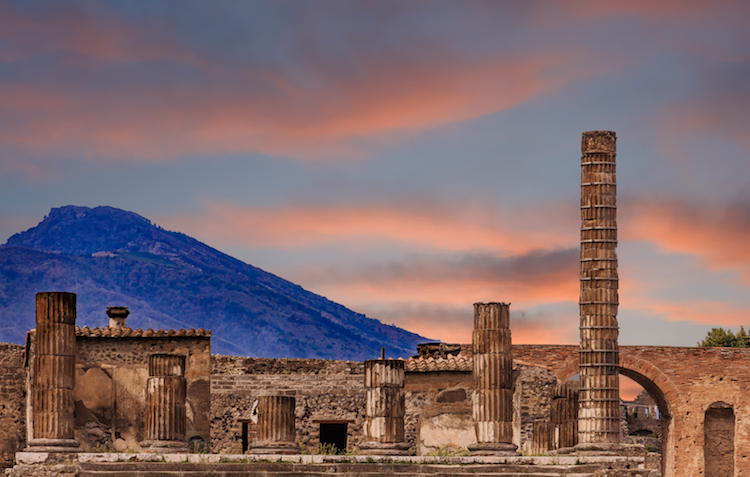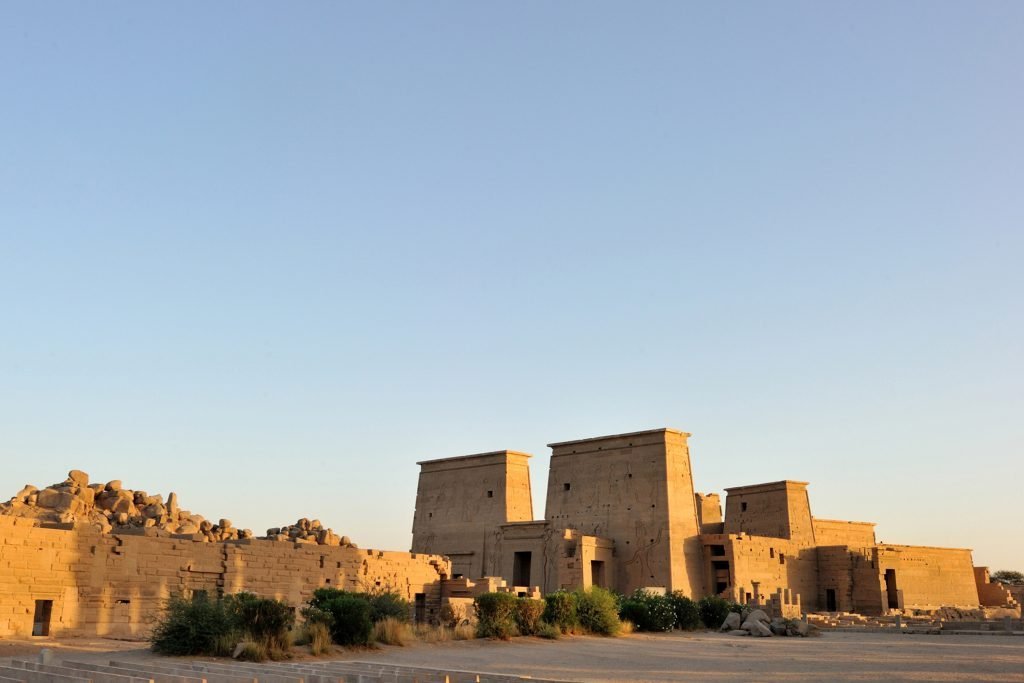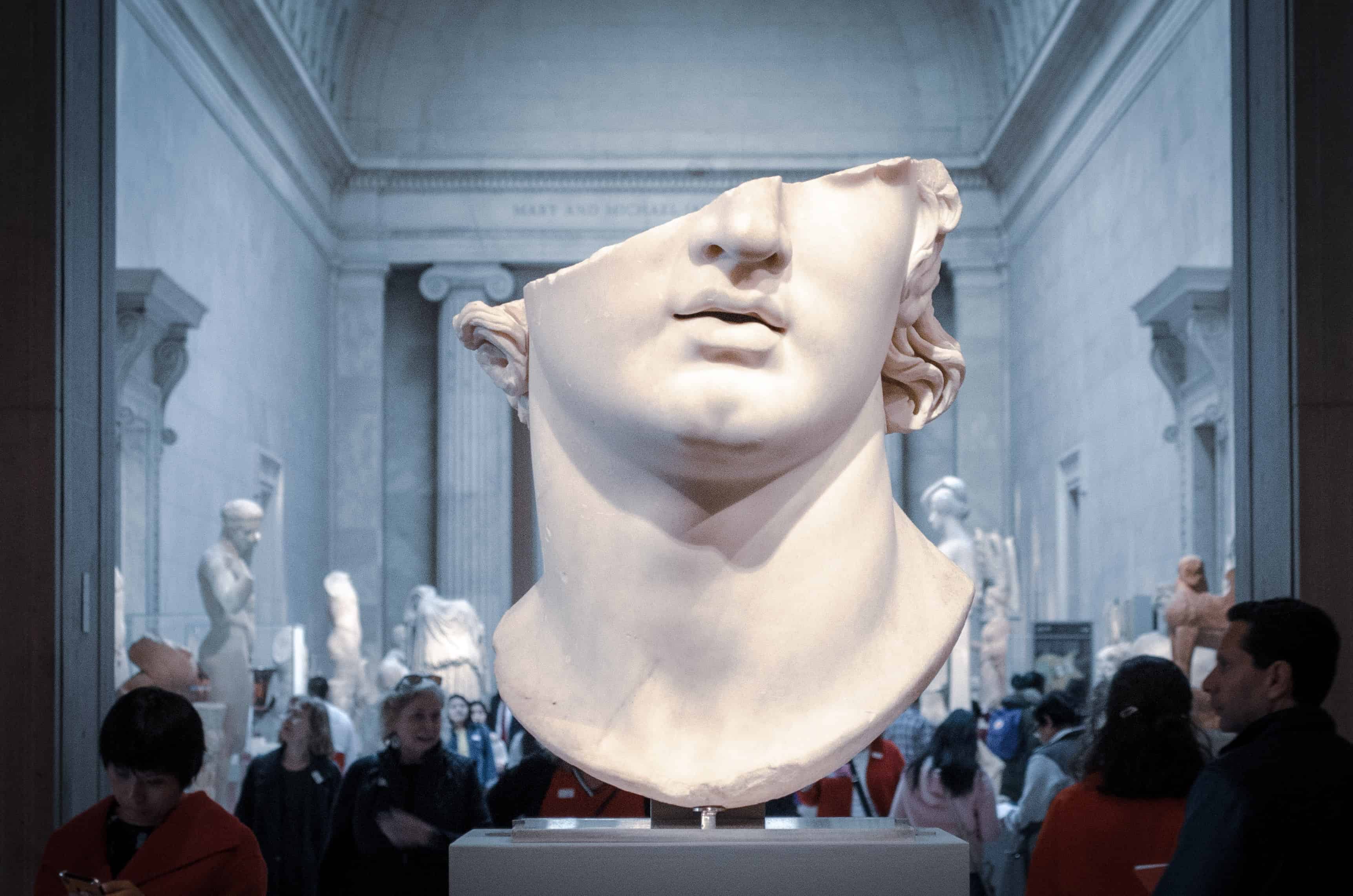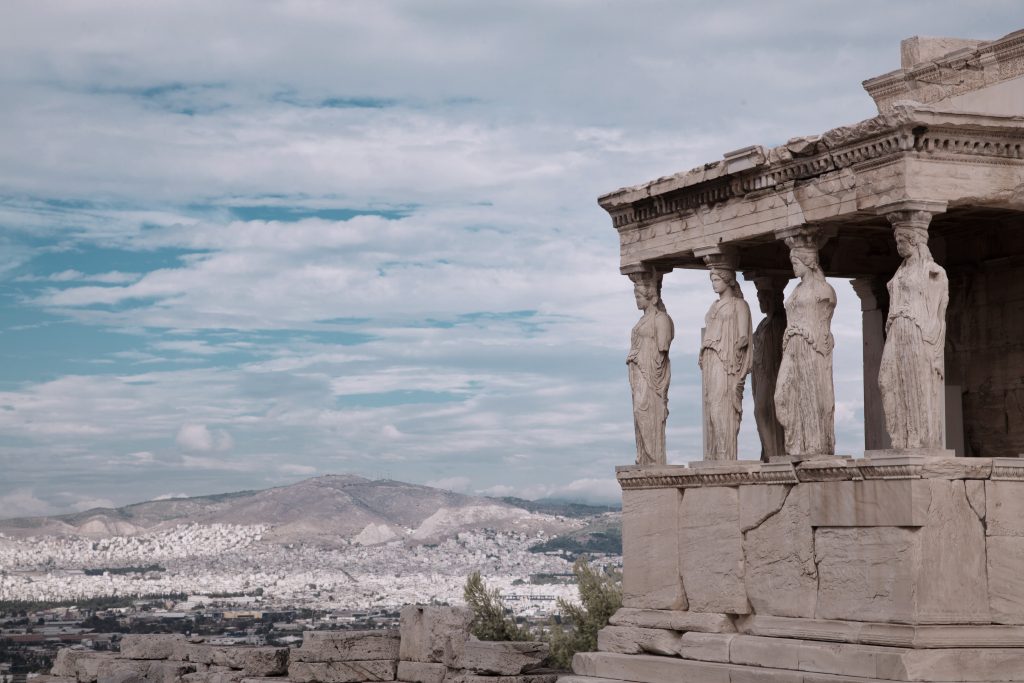365 days to study 300 years’ worth of Ancient History – where do you even begin with a HSC Ancient History study plan?
There’s so much content to memorise, as well as sources and historians!
Unfortunately, writing and rewriting notes alone isn’t enough for a Band Six – but doing challenging questions and practice exams will help you get there!
Got only a week until your exam?
Fear not! This 7 Day Ancient History Study Plan will help you prepare to ace your HSC Ancient History Exam!
Day 1: Know Thy Enemy
Day 2: Core – Pompeii and Herculaneum
Day 3: Ancient Societies
Day 4: Personalities in their Times
Day 5: Historical Periods
Day 6: Fine Tuning
Day 7: Last Minute Preparation
Day 1: Know Thy Enemy
Before you can get started on your Ancient History study plan, you first need to determine what you have to study.
To make the most of your time, prioritise the areas that you are least familiar or confident with, and focus your initial study here.
Identify Your Weaknesses
The best way for you to do this is through the HSC Ancient History Syllabus here.
It’s a bit of a read, so here’s some page number guides to help you find your topics:
- Part I: Core Studies – Cities of Vesuvius: Pompeii and Herculaneum (p.62)
- Part II: Ancient Societies (from p.64)
- Part III: Personalities and Their Times (from p.73)
- Part IV: Historical Periods (from p.84)
Print out the pages which are relevant to you.
Go through each dot point and then on a scale of 0 to 5, rate yourself on your perceived level of knowledge and understanding:
- 0 = I know nothing about this dot point.
- 5 = I know this dot point back to front
Your syllabus should look something like this:
Ensure your notes correspond with the Syllabus
Carefully read through your Ancient History notes, and make sure they correspond to the dot points and structure in the syllabus.
Tick each syllabus dot point off as you’ve identified that you’ve covered them in your notes.
Because the questions in the HSC Exam are based on these syllabus dot points, utilising the syllabus content and structure in your study notes will help you be prepared for the exam.
As you’re moving through, pay particular attention to areas that you rated less than 4 in your understanding and knowledge.
For each dot point check whether your notes include:
- At least three facts about each point
- Three pieces of historical evidence- such as a quotation, or piece of art
If you don’t have three facts or pieces of evidence in your notes, and can’t think of any off the top of your head, highlight this section- this is what you need to revise.
Start filling the gaps
Now that you’ve identified the areas of the HSC Ancient History syllabus you need to work on, and found any gaps in your study notes, it’s time to start filling in the gaps.
Referring to your textbook, class work or online resources, use the following three questions to build your notes and knowledge:
- What is the nature of [dot point]?
- What evidence supports [dot point]? (x 3)
- What does the evidence reveal about [dot point]?
Let’s use the ‘temples’ from the Pompeii and Herculaneum Syllabus dot point “religion: household gods, temples, foreign cults and religions, tombs” as an example.
Your answers to the above questions may look like this:
What is the nature of religious temples?
Temples and sanctuaries in Pompeii and Herculaneum were dedicated to official state gods (e.g. Jupiter, Juno), the imperial cult (e.g. Augustus), protector deities (e.g. Apollo, Hercules), and foreign gods (e.g. Bacchus, Isis).
What evidence supports religious temples? (x 3)
- Temple of Jupiter dominated the Pompeiian Forum, and was the chief temple of importance
- College of the Augustales was dedicated in Herculaneum to maintain the cult of Augustus and the Iulii
- Temple of Venus was destroyed in 62AD but by 79AD the foundations of the new temple had just been completed.
What does the evidence reveal about religious temples in Pompeii and Herculaneum?
Pompeii and Herculaneum were religious societies which had a blend of religions from across the Mediterranean which operated cohesively inside a community.
If you haven’t kept on top of your study notes, now isn’t the time to be writing them or making them pretty but consolidating information of which you may not be so sure.
If you do need a bit of help figuring out how to get on top of your notes, check out our article on updating your notes here.
Day 2: Core – Pompeii and Herculaneum
Image from My Modern Met
Complete a Past Paper for Section One
From 2019, the layout of the HSC Ancient History Exam has changed. This limits the range of available practice papers which resemble the exam you will be taking.
A good place to start is with the 2019 HSC Ancient History exam paper, which you can find here!
You can also check out our other article with practice questions for Pompeii and Herculaneum!
Older HSC papers are still usable for practice exams, however you will need to be aware of the differences between these and the current exam structure.
Pre 2018, Ancient History HSC Exams included five multiple choice questions and an extended response that each year related to the last section of the syllabus.
However – the old past papers are not useless, they are still great practice for the real thing! Just be mindful and aware that some of the sections will look different and the question types may be different.
For access to these previous Ancient papers, check out our master list here!
Try and complete the practice paper under exam conditions – closed book and within 45 minutes.
When you’re done, check it against the Marking Guidelines, if they are available, and give yourself an honest marking.
If you get a question wrong, or lose a mark, take note of why:
- Silly mistake
- Did not know answer
- Misunderstood question
- Incorrect knowledge
This way, you know what you’ll need to brush up on.
Revise Your Notes
For the areas you’ve identified as needing more work, go back to the HSC Ancient History syllabus.
Ask yourself the same questions as set out above:
- What is the nature of [dot point]?
- What evidence supports [dot point]? (x 3)
- What does the evidence reveal about [dot point]?
Answer these out aloud using your own knowledge. When you’re done, look back to your notes.
Now, give yourself an honest rating of how well you did:
- 0/5 – No attempt, or completely incorrect
- 1/5 – Attempt made, but mostly incorrect
- 2/5 – Source listed but no correct fact provided OR correct fact provided by no source
- 3/5 – Sources listed but fact is erroneous OR sources are erroneous, but fact is correct
- 4/5 – 2/3 sources are correct and substantiate the fact OR 3/3 sources are correct, but fact is erroneous/incorrect
- 5/5 – All sources are listed and correctly substantiate the fact
Anything less than a 3/5 should be revised once more. Don’t stress out if you’re not getting everything correct!
Remember, you are marking yourself, and more often than not, we can be a harsher critic to ourselves than markers will be!
Day 3: Ancient Societies
The questions for Ancient Societies often (but not always) follow a similar form:
- What is… (object)?
- What was a feature of (subject)?
- What is the role of (subject)?
- What does (source) reveal about (subject) during (this) period?
Given that this is generally what is asked, go through your notes and revise by asking yourself the above questions with reference to the Ancient Society you’ve studied.
Don’t forget to also consider the key outcomes for the topic as prescribed by NESA.
Revise Your Notes
Your questions should shape themselves towards the key features of the dot point.
For example, if you are studying ‘Option A: New Kingdom Egypt society to the death of Amenhotep III’ and you’re going through the point ‘The economy – importance of the Nile: agriculture…’ you would want to ask yourself the following questions:
- What is the importance of the Nile in Egyptian economy?
- What was a feature of the Nile in Egyptian agriculture?
- What was the role of the Nile in Egyptian agriculture, and thus the economy?
- What does (2 sources) reveal about the Nile in Egyptian agriculture during this period?
Anything that you cannot recall in less than 10 seconds, you need to revise.
Past Paper
Grab yourself a practice paper from above and put yourself under exam conditions. Having revised, you should have a general idea of everything inside the exam using the above questions.
Again, mark your responses against the Marking Criteria, and complete any necessary further revision.
Day 4: Personalities in their Times
The content focus for this topic is:
Students develop an understanding of ONE ancient personality in the context of their time, through a range of archaeological and written sources and relevant historiographical issues.
Thus, when you study your Personality, define it through this lens.
Practice Extended Responses
Like with the other topics, the best thing you can do to prepare is to revise your notes, and then practice applying your knowledge to practice questions.
Again, there have been changes to the layout of this section of the HSC Exam.
While there used to be a 10 and a 15 mark question, in the new syllabus, there could be two or three questions, adding up to a total of 25 marks.
Use the 2019 HSC Ancient History exam paper to practice your extended responses.
To test your knowledge on your personality, and prepare to answer questions, the best thing you can do is go back to the flawless three questions from above.
- What is the nature of [dot point]?
- What evidence supports [dot point]? (x 3)
- What does the evidence reveal about [dot point]?
Complete a practice paper, and using marking criteria and notes from the marking centre, grade your response.
Use the three questions above to consolidate any gaps revealed in your knowledge after completing the questions.
Day 5: Historical Periods
Revision
Your historical period essay questions will always require you to make a judgement on an issue.
Through inspecting the Content Focus, we can garner a lot of information about what the question will ask you:
Content Focus: Through an investigation of the archaeological and written sources of ONE historical period, students learn about the nature of power and authority, significant developments that shaped the historical period, as well as relevant historiographical issues.
Considering this, ask yourself the following questions:
Developments and Forces
- What was the development of the society?
- What were the causes or catalysts for the development?
- What/whom triggered the development within the society?
- What was the impact of the development upon the historical period as a whole?
- Was the development successful/beneficial/fulfilling of its aims, and if so, how much?
- What was the importance of the development for the society?
Historiographical Issues
- Why are the accounts different?
- What accounts are there of this historical period?
- Which account do you think is the most valid? Why?
- Whose interpretation do you agree with? Can both be right?
For excellence, allocate one dot point to each of these questions and give a 150 word outline to a draft essay with at least 4 sources each.
Practice Exam
Grab yourself a practice exam from above and write it under exam conditions.
For an extra challenge, give yourself 10% less time so you get comfortable with exam conditions!
Day 6: Fine Tuning
Identify Problem Areas
Skim the entire HSC Ancient History syllabus, identify any remaining problem areas, and focus on perfecting those in time for the exam.
Struggling with Pompeii and Herculaneum? Dedicate most of your spare time to that.
Bemused by your Ancient Society? Go back and ask yourself the three vital questions in the ‘look – cover – write – check’ style.
Spend twenty minutes or so revising your notes and working through the problem areas.
Then, take a breather and get yourself prepared to do a complete practice exam.
Practice Exam
Select an old exam, or put one together using different relevant sections from above.
Complete the exam as if it was your HSC – closed book, within three hours.
Keep an eye on your timing, try to spend no longer than 45 minutes on each section.
Day 7: Last Minute Preparation
It’s the day before your exam! Let’s get down to it.
Revise Each Section
Make sure you have a look over all areas of study, including the Core topic, Ancient Societies, Personalities and Their Times and Historical Periods.
Essay Preparation
Prepare a variety of both ancient and modern evidence (including archaeological evidence).
Break down your essay into paragraphs based on certain thematic ideas.
For example, consider the HSC question: “How did Xerxes administer his empire?”.
You could focus on his satrapy system in one paragraph, his religious policy in another, his foreign policy in a third etc. until you’ve run out of time or ideas. Most of your paragraph topics can come straight from syllabus points, like the ones I’ve just mentioned.
Know Your Problem Areas
Identify and perfect problem areas with a question and answer style approach.
Construct questions on parts of the syllabus you don’t feel as confident in and answer them aloud or write them out.
You could use flashcards to help test yourself or even get a friend or family member to help you out!
Get a Good Sleep
Get a good night’s sleep – this means 8+ hours!
Sacrificing sleep for study never pays off, so get a good amount of shut-eye even if you think you’re not fully prepared.
Don’t Stress!
Don’t stress! The HSC exams are almost here, but that means they’re almost over.
Keeping calm and positive is the best thing you can do for yourself from now until your final exam.
With this, you should feel much more prepared for your HSC Ancient History Exam!
Looking for some extra help with your HSC studies?
We pride ourselves on our inspirational HSC coaches and mentors!
We offer tutoring and mentoring for Years K-12 in a variety of subjects, with personalised lessons conducted one-on-one in your home or at our state of the art campus in Hornsby!
To find out more and get started with an inspirational tutor and mentor get in touch today!
Give us a ring on 1300 267 888, email us at [email protected] or check us out on Facebook!
Jack Theodoulou studies a double degree of Education/Arts majoring in English at the University of Sydney. Previously an instructor of classical guitar, Jack began coaching at Art of Smart in 2015. In his spare time, Jack often finds himself entangled in a love-hate relationship with fiction-writing and a (possibly) unhealthy obsession with video games.

